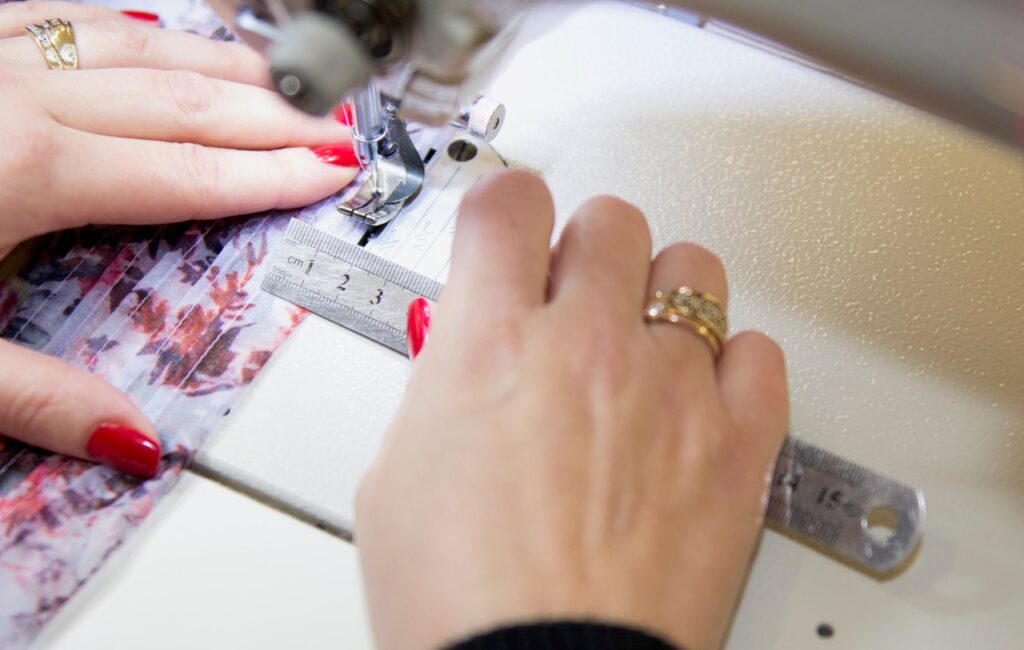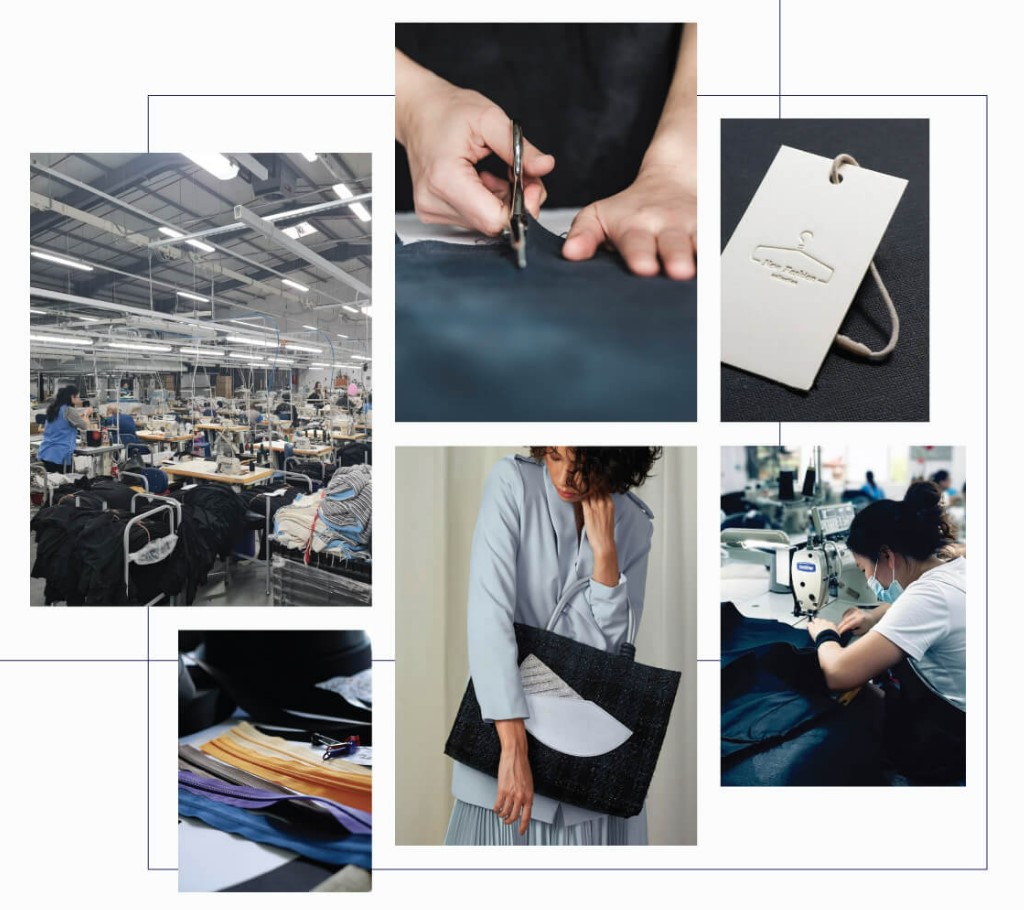
CUT, MAKE, TRIM!
Everything You Need to Know about CMT Manufacturing for Intimate Apparel
If you are a start-up or entrepreneur in the intimate apparel industry, you must be looking for ways to optimize your manufacturing process, cut costs, and improve efficiency. One method that is gaining popularity in the industry is CMT manufacturing, which stands for Cut, Make, and Trim. In this blog post, we will explore what CMT manufacturing is, how it works, and its pros and cons for intimate apparel production.

What is CMT Manufacturing?
CMT manufacturing is a process where a manufacturer only performs three steps – cutting the fabric, making the garment, and trimming it. The manufacturer does not have to concern about designing, sourcing, or dyeing the fabric. Instead, the manufacturer simply follows the provided specifications and creates the garment. This process is ideal for businesses that have a clear idea of their intimate apparel design and need a manufacturer to bring their vision to life.

Cut, Make, Trim: How it Works?
The first step in CMT manufacturing is cutting the fabric. This step is vital as it involves precise measurements and reduces waste. Once the fabric is cut, the manufacturer proceeds to make the garment. This involves stitching together different parts of the garment, such as the cups and straps of a bra or the panels of a panty. The final step is trimming, which involves finishing touches, such as adding hooks, adjusting straps, or applying decorative elements.
Pros and Cons of CMT Manufacturing for Intimate Apparel
Pros:
- Cost-Effective for Small Businesses: CMT manufacturing allows small businesses and start-ups to produce their own intimate apparel without investing in expensive equipment or hiring skilled workers.
- Customization: With CMT manufacturing, entrepreneurs can customize their products according to their specific needs and preferences, including fabric selection, size, pattern, and design.
- Quality Control: Since the entrepreneur has control over the entire production process, they can ensure that the final product meets their quality standards.
- Sustainability: It is an eco-friendly alternative to traditional manufacturing processes since it enables businesses to control waste and utilize renewable resources.
Cons:
- Expensive: While CMT manufacturing is cost-effective for small businesses, it can still be more expensive than outsourcing to a traditional manufacturer. Entrepreneur needs to send all fabrics, trims, and other necessary materials to the manufacturer, which can truly be a daunting and expensive task.
- Time-Consuming: It is a time-consuming process, especially for entrepreneurs who are new to the industry and lack experience. As for an example, if the fabrics or elastics need to be dyed, they should have already been dyed before being sent to the manufacturer to produce samples and bulk orders. This requirement can pose a significant issue for businesses, especially if they are working on a tight budget or a short timeline.
- Limited Capacity: CMT manufacturers have limited capacity and may not be able to accommodate larger orders.
- Minimum Order Quantities: Some CMT manufacturers may require minimum order quantities (MOQ), which can be a challenge for start-ups with limited capital.

CMT manufacturing can be a game-changer for start-ups and entrepreneurs in the intimate apparel industry. It offers greater control, flexibility, and customization, which can lead to more efficient production and higher-quality products. However, businesses must carefully consider the pros and cons before deciding if CMT manufacturing is the right option for their needs. By understanding the process and its potential benefits, businesses can make informed decisions and stay ahead of the competition.
Also click here to read our blog post on “CMT vs. FPP: Which Factory is Right for Your Intimate Apparel Brand?”.
